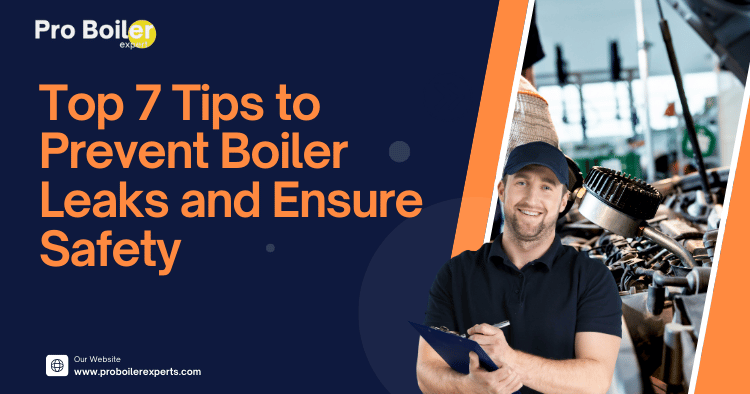Top 7 Tips to Prevent Boiler Leaks and Ensure Safety
- Tip 1: Regular Maintenance
- Tip 2: Monitor Pressure Levels
- Tip 3: Check for Corrosion
- Tip 4: Inspect Valves and Fittings
- Tip 5: Ensure Proper Ventilation
- Tip 6: Use Quality Components
- Tip 7: Know When to Call a Professional
Tip 1: Regular Maintenance
Regular maintenance is key to preventing leaks and ensuring the safety of your boiler. Schedule routine inspections with a certified technician.
Tip 2: Monitor Pressure Levels
Keep an eye on the pressure gauge. If the pressure is too high or too low, it can lead to leaks or other issues.
Tip 3: Check for Corrosion
Corrosion can weaken your boiler’s structure. Regularly inspect for signs of rust and address any issues immediately.
Tip 4: Inspect Valves and Fittings
Loose or damaged valves and fittings can cause leaks. Make it a habit to check these components during maintenance.
Tip 5: Ensure Proper Ventilation
Proper ventilation is essential for boiler efficiency and safety. Ensure that vents are clear and unobstructed.
Tip 6: Use Quality Components
Always use high-quality components for repairs and replacements to avoid future leaks and ensure durability.
Tip 7: Know When to Call a Professional
If you notice any unusual sounds or leaks, don’t hesitate to call a professional to assess the situation.
Table of Contents
- Understanding Boiler Leaks
- Tip 1: Regular Maintenance
- Tip 2: Monitor Pressure Levels
- Tip 3: Inspect Valves and Fittings
- Tip 4: Install a Leak Detection System
- Tip 5: Keep an Eye on Corrosion
- Tip 6: Avoid Overloading the System
- Tip 7: Know When to Call a Professional
- FAQs
- Conclusion
Understanding Boiler Leaks
Boilers are essential components in many homes and businesses, providing heat and hot water. However, they can develop leaks that not only waste energy but also pose significant safety risks. Common causes of boiler leaks include wear and tear, corrosion, faulty valves, and improper installation. Understanding these issues is crucial for maintaining a safe and efficient system. Regular checks and maintenance can significantly reduce the risk of leaks and improve the longevity of your boiler.
Regular maintenance not only saves you money in the long run but also ensures peace of mind knowing your system is safe and efficient.
Tip 1: Regular Maintenance
Regular maintenance is crucial in preventing boiler leaks. Schedule a professional inspection at least once a year. A certified technician will check for leaks, test pressure levels, and assess the overall condition of your boiler. Additionally, you can perform basic maintenance yourself, such as:
- Checking the pressure gauge: Ensure it is within the manufacturer’s recommended range.
- Bleeding radiators: This helps release trapped air, improving efficiency.
- Cleaning filters: Dirty filters can strain the boiler, leading to leaks.
For more detailed maintenance tips, check out Energy.gov’s Boiler Maintenance Guide.
A well-maintained boiler is less likely to experience leaks, which can lead to costly repairs and safety hazards.
Tip 2: Monitor Pressure Levels
Pressure levels are critical for a boiler’s safe operation. Too high, and you risk leaks; too low, and your system won’t work effectively. Use a pressure gauge to monitor levels regularly. Most boilers operate best between 1 to 2 bars when cold. When the system is hot, pressure can increase to 2.5 bars. If you notice pressure consistently exceeding these levels, it may be time to investigate further or contact a technician.
Monitoring pressure levels is like having a health check for your boiler—catching issues early can save you from a major crisis later.
Tip 3: Inspect Valves and Fittings
Valves and fittings are common culprits for leaks. Regularly inspect them for signs of corrosion, wear, or damage. Look for:
- Rust: This indicates corrosion, which can lead to leaks.
- Loose fittings: Tighten any loose connections to prevent leaks.
- Leaking valves: If you notice water pooling around a valve, it may need replacement.
Keeping these components in good condition ensures the longevity of your boiler and helps prevent leaks. For more about ensuring your boiler’s integrity, refer to Top 5 Boiler Installation Issues and How to Fix Them.
A small leak today can lead to a big problem tomorrow—stay vigilant with your inspections!
Tip 4: Install a Leak Detection System
Investing in a leak detection system can save you from significant damage and costs. These systems can alert you to leaks early, allowing you to take action before a small issue becomes a major problem. Many modern systems can integrate with your home automation setup, sending notifications to your smartphone if a leak occurs. This proactive approach can help safeguard your home and provide peace of mind.
Think of a leak detection system as your boiler’s personal alarm system—early warning can prevent disaster!
Tip 5: Keep an Eye on Corrosion
Corrosion is a silent enemy of boilers. It weakens components and can lead to leaks if left unchecked. To combat corrosion, consider the following:
- Use water treatment: This can reduce the risk of corrosion by controlling pH levels and removing harmful substances.
- Inspect the anode rod: In hot water boilers, the anode rod helps prevent corrosion. Regularly check and replace it if necessary.
Monitoring for signs of corrosion can extend the life of your boiler and reduce the likelihood of leaks. Learn more about maintenance in Essential Boiler Maintenance Tips: Keep Your System Efficient.
Corrosion might be gradual, but its effects can be swift—don’t let it sneak up on you!
Tip 6: Avoid Overloading the System
Overloading your boiler can lead to excessive pressure and temperature, increasing the risk of leaks. Be mindful of your boiler’s capacity and avoid running multiple high-demand appliances simultaneously. It’s also wise to consult your boiler’s manual to understand its limits. If you’re consistently experiencing high demand, it may be time to consider upgrading to a larger unit. You can explore options in Top 5 Energy Efficient Boiler Types for 2024.
Respect your boiler’s limits—overloading is a recipe for disaster!
Tip 7: Know When to Call a Professional
While DIY maintenance is essential, there are times when you should call in a professional. If you notice:
- Persistent leaks that you can’t locate
- Unusual noises coming from the boiler
- A significant drop in pressure
These could be signs of more serious issues that require expert intervention. Regular inspections and addressing problems early can prevent major repairs or replacements down the line. For emergency situations, read Top 7 Emergency Boiler Repair Tips You Need to Know.
When in doubt, call it out! Sometimes, a professional touch is the best way to ensure safety and functionality.
FAQs
Q: How do I know if my boiler is leaking?
A: Look for signs such as puddles of water around the boiler, rust forming, or a drop in pressure on the gauge.
Q: Can I fix a boiler leak myself?
A: Small leaks can sometimes be addressed, but it’s best to consult a professional for any significant issues to ensure safety and compliance with regulations.
Q: How often should I service my boiler?
A: Ideally, you should have your boiler serviced annually to ensure it operates safely and efficiently.
Conclusion
Preventing boiler leaks is essential for safety and efficiency. By implementing these tips—conducting regular maintenance, monitoring pressure, inspecting valves, installing detection systems, watching for corrosion, avoiding overloading, and knowing when to seek professional help—you can significantly reduce the chances of a leak. Not only willSure! Please provide the Markdown content you’d like me to convert to HTML.





